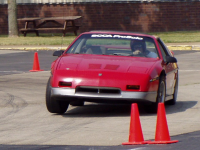Search Results (Searched for: )
- Aciera

05 Mar 2025 18:49
Replied by Aciera on topic Unser Plasmatisch “Hevy-Metal
Unser Plasmatisch “Hevy-Metal
Category: Show Your Stuff
- PCW

05 Mar 2025 18:42
Replied by PCW on topic HURCO KMB-1 Control Update
HURCO KMB-1 Control Update
Category: Milling Machines
- NT4Boy
- NT4Boy
05 Mar 2025 18:40 - 05 Mar 2025 18:40
Replied by NT4Boy on topic HURCO KMB-1 Control Update
HURCO KMB-1 Control Update
Category: Milling Machines
- TangentAudio
- TangentAudio
05 Mar 2025 18:24 - 05 Mar 2025 18:25
Replied by TangentAudio on topic Commander SK VFD
Commander SK VFD
Category: General LinuxCNC Questions
- jtrantow
- jtrantow
05 Mar 2025 18:14 - 05 Mar 2025 18:17
- cmorley
- cmorley
05 Mar 2025 18:07
- Todd Zuercher

05 Mar 2025 18:04
- PCW

05 Mar 2025 17:40 - 05 Mar 2025 17:42
Replied by PCW on topic Ethernet Settings for Raspi4
Ethernet Settings for Raspi4
Category: Installing LinuxCNC
- LCR
- LCR
05 Mar 2025 17:31
Replied by LCR on topic Problems with Lichuan Ethercat servo drive
Problems with Lichuan Ethercat servo drive
Category: EtherCAT
Time to create page: 0.436 seconds
